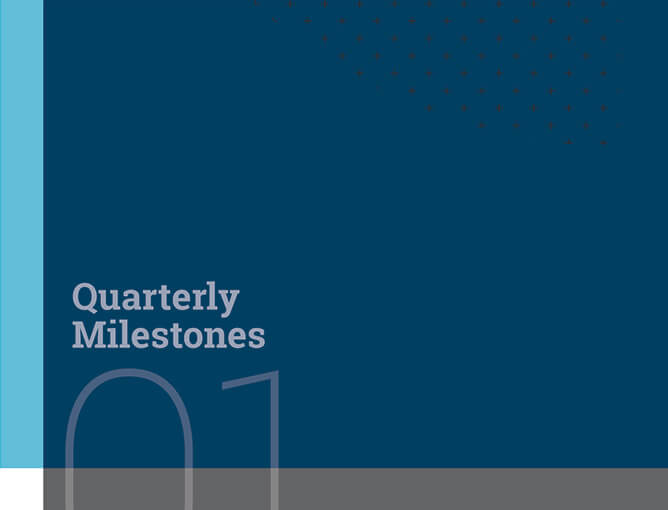
Shankh SenguptaPartner

Varuna BhanraleCounsel
The October-December 2021 quarter saw the Indian judicial system resume more normal functioning, with most courts and tribunals allowing in-person or hybrid hearings. Some important judgments were delivered by the Supreme Court, especially in the realm of insolvency law. The Supreme Court held that the timeline to complete corporate insolvency resolution processes (CIRPs) under the Insolvency and Bankruptcy Code, 2016 (IBC) was mandatory and threw light on the ambit of the residuary powers of the National Company Law Tribunal (NCLT) in insolvency proceedings. In arbitration law, the Supreme Court clarified the powers of appellate courts to consider new grounds challenging arbitral awards.
Key Developments
-
Supreme Court holds that CIRPs must be completed within the timeline stipulated under the IBC
The Supreme Court, in Committee of Creditors of Amtek Auto Limited v DT Venkatsubramanian, considered whether the CIRP of a corporate debtor could be extended beyond the mandatory timeline of 330 days stipulated under the IBC. In this case, the successful resolution applicant had failed to act as per the approved resolution plan and additional time was requested to attempt a fresh resolution process.
The Supreme Court observed that the mandatory timeline of 330 days was recently introduced pursuant to an amendment to the IBC in 2019, and any deviation from it would defeat the object and purpose of providing such time limit. The Supreme Court consequently directed the resolution applicant to implement the resolution plan instead of extending the CIRP.
Notwithstanding the attempts of the legislature and judiciary to ensure expeditious completion of CIRPs, in many cases parties request extension of CIRPs. This judgment settles the position that notwithstanding any particular challenges faced by the parties, the timeline of 330 days for completing CIRPs is sacrosanct and must be adhered to.
-
Supreme Court clarifies the scope of NCLT’s residuary powers under the IBC in case of termination of a contract against a corporate debtor during CIRP
The Supreme Court, in Tata Consultancy v Resolution Professional of SK Wheels, dealt with a case in which the NCLT had stayed the termination of a contract by a party that was availing of services from and using premises leased by the corporate debtor. The termination was on account of alleged lapses in services and the question arose whether the NCLT had the power to set aside or stay the termination pursuant to its residuary powers under section 60(5) of the IBC.
It was held that residuary jurisdiction of the NCLT could not be invoked if the termination of a contract with a corporate debtor was based on grounds unrelated to the insolvency of the corporate debtor. The Supreme Court further affirmed its decision in Gujarat Urja Vikas Nigam v Amit Gupta and held that even if a contractual dispute arose in relation to the insolvency, a party could be restrained from terminating the contract only if it was central to the success of the CIRP and would otherwise lead to corporate death of the corporate debtor.
This judgment is significant as it provides further clarity on the contentious issue of the potentially wide-reaching powers of the NCLT to deal with and adjudicate on disputes arising from contracts executed by a corporate debtor.
Please click here to read our detailed update on this judgment.
-
Supreme Court clarifies that an appellate court under section 37 of the Arbitration Act, 1996 can consider new grounds for setting aside an arbitral award
In State of Chhattisgarh v Sal Udyog, the Supreme Court considered a case in which a party challenging an arbitral award had not raised the ground of 'patent illegality' before the relevant court under section 34 of the Arbitration and Conciliation Act, 1996 (Arbitration Act). However, in appeal under section 37 of the Arbitration Act, it contended for the first time that the award was vitiated by 'patent illegality'. Thus, the issue of whether the challenging party was estopped from contending ‘patent illegality’ before the appellate court arose before the Supreme Court.
The Supreme Court observed that section 34(2A) of the Arbitration Act allowed a court to set aside an award 'if the court finds' that the award was vitiated by patent illegality. On this basis, it held that the appellate court under section 37 of the Arbitration Act was also empowered to consider the ground of 'patent illegality' of its own accord, irrespective of whether or not such ground was taken in the proceedings under section 34 of the Arbitration Act.
This judgment clarifies the powers of the appellate court under section 37 of the Arbitration Act to consider new grounds. However, this decision may provide an undesirable window to litigants who seek to prolong challenge proceedings against arbitral awards by seeking to raise fresh grounds before the appellate courts under section 37 of the Act.
The judgments of the Supreme Court on insolvency law discussed above are consistent with the policy objectives of the Indian legislature and provide further nuance to the insolvency jurisprudence in India. The decision rendered under the Arbitration Act, however, must be considered by the appellate courts with caution to prevent dilatory and frivolous challenges to arbitral awards.
While Indian courts had resumed physical hearings in the previous quarter, this scenario changed again by the end of December when the spread of the Omicron variant of Covid-19 caused the pandemic to return with full vigour. Taking note of the surge in Covid-19 cases, the Supreme Court, many High Courts, lower courts and tribunals went back to virtual hearings in January 2022 with the Supreme Court also reinstating its earlier order on the extension of the limitation period for all judicial proceedings. The period from 15 March 2020 to 28 February 2022 will now be excluded from the computation of limitation. It will be interesting to see how the Indian judiciary continues to manoeuver its way through the pandemic while ensuring that the interests of litigants are not compromised.











